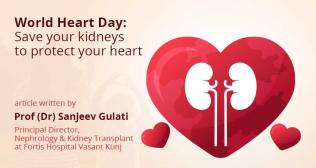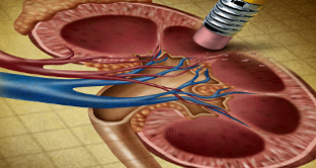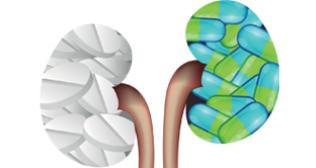
Checklist Of Food Causing Kidney Stone
We all have heard about kidney stones that usually develop in one or both kidneys. It is formed when the concentration of substances like calcium, cystine, oxalate and uric acid – which easily crystallize – goes beyond the limit that can be diluted by urine. The pain can be excruciating when the stone passes through the urine. Most of the times they don’t require invasive treatments and can be removed by doing small dietary changes along with certain medications.
Although there are several known factors which elevate the chances of developing stones, their formation cannot be attributed to any single cause. Sometimes a pre-existing medical condition can factor in an increased concentration of stone-forming substances in urine. Low fluid intake is another common reason that leads to kidney stone formation.
Kidney stones – classification
It is important to classify the kidney stones to reduce their risks. They can be classified as follows:
- Calcium stones: Caused by the excess calcium accumulation in urine, these are the most frequently diagnosed. Calcium oxalate is the most typical form they are found in. Oxalate is also found in our food and made daily by our liver.
- Struvite stones: Struvite stones are found more in women than in men. They are caused by infections, most commonly seen after a long-lasting urinary tract infection.
- Uric acid stones: It is usually caused by less than normal intake of fluids, extreme loss of body fluids or high – protein diet and gout. Occasionally, these can be genetic.
- Cystine stones: These are the rare type of kidney stones which is caused due to hereditary disorder. It causes the kidney to excrete certain types of amino acids
Here’s how kidney stones affect your dietary choices
In addition to calcium and oxalate, regulating the intake of sodium and animal protein along with other dietary changes can help in preventing kidney stones. You can consult a dietician specializing in kidney stone prevention to device a meal – plan that suits your dietary needs. Following dietary changes can be incorporated depending on the type of the stone found in the kidney:
Cut down on oxalate-rich intake: For calcium oxalate stones
- nuts and nut products
- peanuts—which are legumes, not nuts, and are high in oxalate
- rhubarb
- spinach
- wheat bran
- People with a history of calcium oxalate stones should avoid the following food to reduce the amount of oxalate in their urine:
Limit Animal Protein: For calcium oxalate, calcium phosphate & uric acid stones. One might be advised to cut down on the consumption of animal protein, including
- beef, chicken, and pork, especially organ meats
- eggs
- fish and shellfish
- milk, cheese, and other dairy products
However, reducing animal protein intake does not mean eliminating protein from your diet, altogether. You can easily substitute animal protein with some of these vegetarian alternatives which have high protein quotient.
- vegetarian alternatives
- legumes such as beans, dried peas, lentils, and peanuts
- soy foods, such as soy milk, soy nut butter, and tofu
- nuts and nut products, such as almonds and almond butter, cashews and cashew butter, walnuts, and pistachios
- sunflower seeds
Reduce sodium intake: For calcium oxalate, calcium phosphate & uric acid stones higher than normal sodium intake puts you at a higher risk of developing kidney stones. Sodium is a portion of salt. Sodium is found in many canned, packaged, fast foods, in certain condiments, seasonings, and meats.
Increase your calcium intake from foods: For calcium oxalate, calcium phosphate & uric acid stones although calcium sounds being the culprit for calcium stones, it’s actually not. When consumed in correct quantities, it obstructs other constituents in the digestive tract that may be a reason for stones. Calcium intake should be increased from plant-based foods such as green-leafy vegetables, fresh fruit juices, dairy products and some types of legumes.
Lose weight: For uric acid stones losing weight for overweight people can reduce their chances of getting a uric acid stone
Drink enough liquid: For cystine stones drinking liquids especially water doesn’t need more elaboration. It is an important lifestyle change that must be made to prevent cystine stones. Consult a doctor to find out your ideal water consumption as per your body weight and height.
To conclude…
Preventive measures are no assurance against kidney stones, but they considerably lower the risks of developing stones. Prevention includes a combination of medication and lifestyle changes. Once your healthcare provider finds out why you are forming stones, he or she will give you tips on how to prevent and excrete them effectively. Talk to your doctor about all your symptoms and pain and he will guide you on the correct treatment plan which will work for your type of stone



















